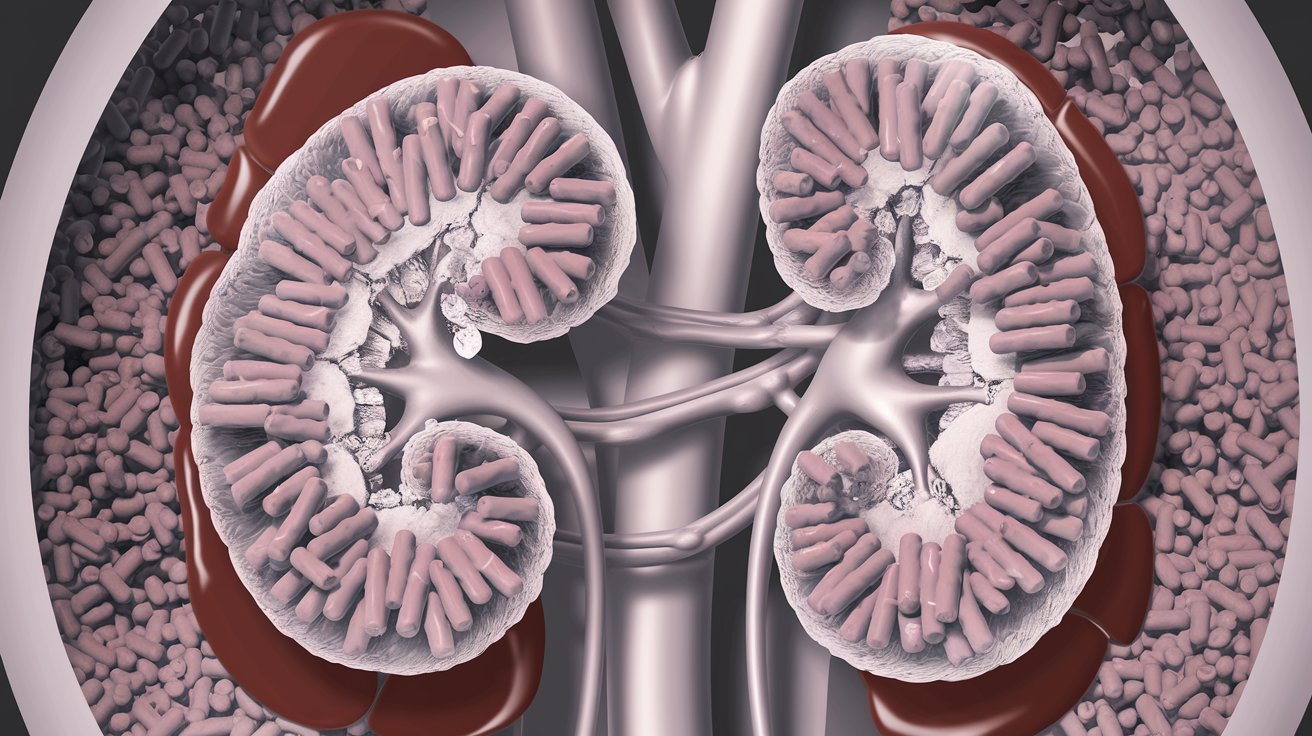
Inborn Renal Aminoaciduria is a rare condition where the kidneys fail to reabsorb amino acids properly, leading to their excessive loss in urine. This genetic disorder can affect anyone, regardless of age or gender. Symptoms often include growth delays, muscle weakness, and frequent infections. Understanding this condition is crucial for early diagnosis and effective management. Inborn Renal Aminoaciduria can be detected through urine tests and genetic screening. Treatment usually involves dietary adjustments and supplements to compensate for lost amino acids. Let's dive into 25 intriguing facts about this rare but impactful condition to better grasp its complexities and implications.
Key Takeaways:
- Inborn Renal Aminoaciduria is a rare genetic disorder affecting kidney function, leading to growth issues and kidney stone formation. Early diagnosis and management are crucial for improving quality of life.
- Treatment involves dietary supplements, hydration, and regular monitoring. Ongoing research aims to develop gene therapy and new medications, while support groups and education play a vital role in managing the condition.
What is Inborn Renal Aminoaciduria?
Inborn Renal Aminoaciduria is a rare genetic disorder affecting the kidneys' ability to reabsorb amino acids. This condition can lead to various health issues, including growth problems and kidney stones. Here are some intriguing facts about this condition.
-
Genetic Origin: Inborn Renal Aminoaciduria is caused by mutations in specific genes responsible for amino acid transport in the kidneys.
-
Autosomal Recessive: This disorder is inherited in an autosomal recessive manner, meaning a child must inherit two copies of the mutated gene, one from each parent, to be affected.
-
Amino Acid Loss: Individuals with this condition lose essential amino acids in their urine, which can lead to deficiencies and related health problems.
-
Early Diagnosis: Symptoms often appear in infancy or early childhood, making early diagnosis crucial for managing the condition effectively.
Symptoms and Health Implications
Understanding the symptoms and health implications of Inborn Renal Aminoaciduria can help in early detection and treatment.
-
Growth Retardation: Children with this disorder may experience stunted growth due to the loss of essential amino acids.
-
Kidney Stones: The condition can lead to the formation of kidney stones, causing pain and potential kidney damage.
-
Muscle Weakness: Amino acid deficiencies can result in muscle weakness and fatigue.
-
Metabolic Acidosis: Some individuals may develop metabolic acidosis, a condition where the blood becomes too acidic.
Diagnosis and Testing
Accurate diagnosis is vital for managing Inborn Renal Aminoaciduria. Here are some methods used to diagnose this condition.
-
Urine Analysis: A urine test can detect elevated levels of amino acids, indicating a problem with kidney reabsorption.
-
Blood Tests: Blood tests can measure amino acid levels and help identify deficiencies.
-
Genetic Testing: Genetic testing can confirm the presence of mutations in the genes responsible for amino acid transport.
-
Family History: A detailed family history can provide clues, especially if there are known cases of the disorder in the family.
Treatment and Management
Managing Inborn Renal Aminoaciduria involves addressing symptoms and preventing complications.
-
Dietary Supplements: Amino acid supplements can help replace those lost in the urine.
-
Hydration: Increased fluid intake can help prevent kidney stones and support overall kidney function.
-
Regular Monitoring: Regular check-ups and monitoring of amino acid levels are essential for managing the condition.
-
Medications: In some cases, medications may be prescribed to manage symptoms or prevent complications.
Research and Future Directions
Ongoing research aims to improve our understanding and treatment of Inborn Renal Aminoaciduria.
-
Gene Therapy: Researchers are exploring gene therapy as a potential treatment to correct the underlying genetic mutations.
-
New Medications: Development of new medications that can enhance amino acid reabsorption is underway.
-
Clinical Trials: Clinical trials are essential for testing new treatments and improving patient outcomes.
-
Patient Registries: Patient registries help collect data on the condition, aiding research and improving care.
Living with Inborn Renal Aminoaciduria
Living with this condition requires adjustments and support from healthcare providers and family.
-
Support Groups: Joining support groups can provide emotional support and practical advice for managing the condition.
-
Education: Educating patients and families about the disorder is crucial for effective management.
-
Lifestyle Adjustments: Making lifestyle adjustments, such as dietary changes and regular exercise, can improve quality of life.
-
Mental Health: Addressing mental health is important, as chronic conditions can impact emotional well-being.
-
Advocacy: Advocacy for research funding and awareness can help improve outcomes for those affected by Inborn Renal Aminoaciduria.
Final Thoughts on Inborn Renal Aminoaciduria
Inborn Renal Aminoaciduria, a rare genetic disorder, affects the kidneys' ability to reabsorb amino acids. This condition can lead to various health issues, including growth delays and metabolic imbalances. Early diagnosis and treatment are crucial for managing symptoms and improving quality of life. Genetic testing plays a significant role in identifying the disorder, allowing for personalized treatment plans. While there's no cure, dietary modifications and supplements can help manage the condition. Awareness and education about Inborn Renal Aminoaciduria are essential for early intervention and support. Understanding the disorder empowers patients and families to seek appropriate care and make informed decisions. By staying informed and proactive, those affected can lead healthier, more fulfilling lives.
Frequently Asked Questions
Was this page helpful?
Our commitment to delivering trustworthy and engaging content is at the heart of what we do. Each fact on our site is contributed by real users like you, bringing a wealth of diverse insights and information. To ensure the highest standards of accuracy and reliability, our dedicated editors meticulously review each submission. This process guarantees that the facts we share are not only fascinating but also credible. Trust in our commitment to quality and authenticity as you explore and learn with us.
